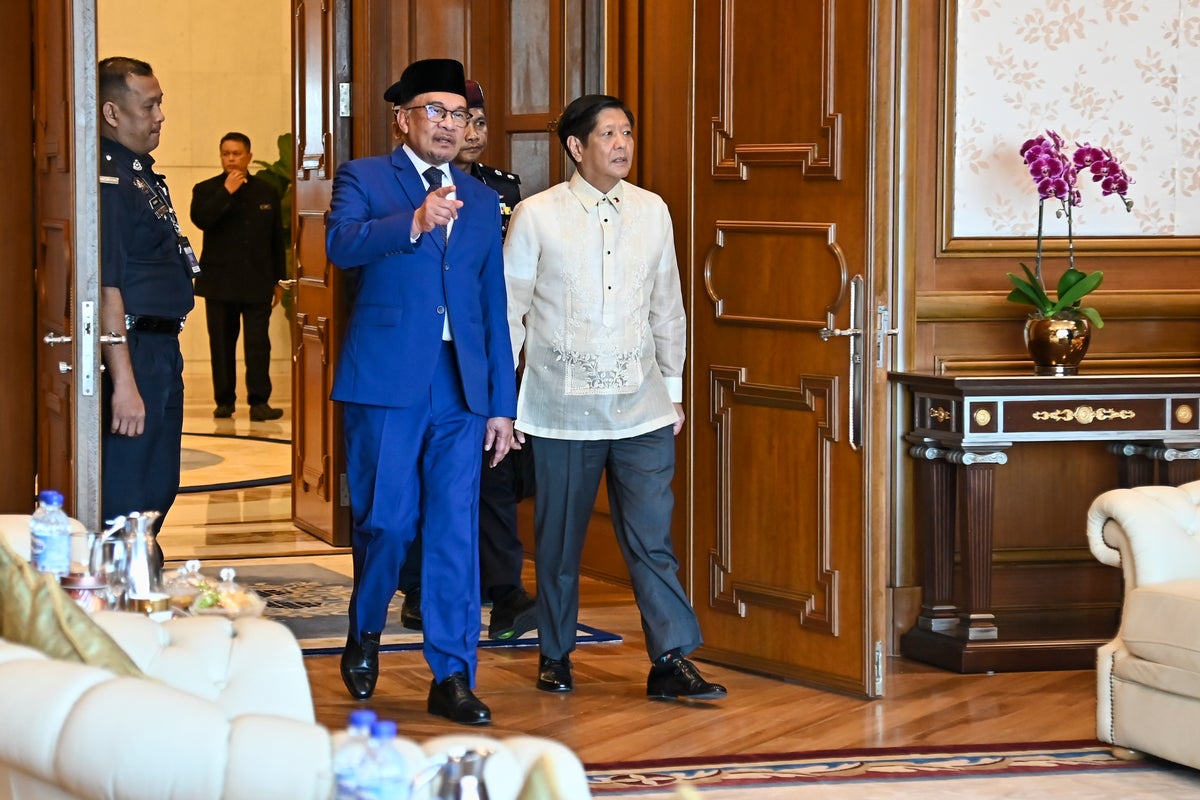
Southeast Asian countries should be given some latitude to engage informally with Myanmar on an individual basis to help resolve a deepening crisis there, Malaysian Prime Minister Anwar Ibrahim said Wednesday.
Anwar said he and visiting Philippines President Ferdinand Marcos Jr. agreed during talks on the need to strengthen the role of the Association of Southeast Asian Nations in ending the violence that started after Myanmar's army seized power from Aung San Suu Kyi's elected government on Feb. 1, 2021.
At the same time, Anwar said neighboring countries should be given “some flexibility, room and space" to engage with Myanmar on an informal basis. But he said it must not come at the expense of “sacrificing the issues of human rights and the treatment of minorities,” particularly the ethnic Muslim Rohingya and others.
Some ASEAN countries, including current chair Indonesia, have been frustrated with Myanmar's refusal to cooperate with a peace plan forged in 2021 that called for an immediate end to the violence and dialogue to be brokered through an ASEAN special envoy. The 10-member bloc has banned Myanmar’s generals from attending ASEAN meetings.
Thailand has already taken a bilateral route to engage Myanmar. Thai Foreign Minister Don Pramudwinai said he met earlier this month with Suu Kyi in detention and that she was open to engage in talks. He is the only foreign government official known to have been given access to Suu Kyi. The military government had earlier refused requests by ASEAN special envoys to meet her.
Don said his meeting with Suu Kyi was “an approach from the friends of Myanmar" to secure a peaceful settlement. Southeast Asian diplomats told The Associated Press that Thailand was taking extra steps to help ease the crisis amid fears that an escalation of violence could drive large numbers of refugees from Myanmar into Thai territory.
Marcos, in a joint press conference with Anwar on Wednesday, didn't mention Myanmar by name. But he agreed that countries should be able to use the bilateral route to resolve problems.
“I think that this will be an important aspect to all the issues that ASEAN is presently facing and to all the issues that the member states are presently worrying about,” he said.
Myanmar's military takeover and its crackdown on armed resistance has plunged the country into deadly chaos. Western and European governments, including the United States, have imposed sanctions on Myanmar’s military government and demanded the immediate release of Suu Kyi and other political detainees.
Suu Kyi, 78, is serving a total of 33 years imprisonment after being convicted on a raft of charges that her supporters and rights groups say were politically motivated in an attempt to discredit her and legitimize the military’s takeover while preventing her from returning to politics.
More than 3,750 civilians, including pro-democracy activists, have been killed by security forces and nearly 24,000 arrested since the military takeover, according to the Assistance Association for Political Prisoners, a rights group that keeps tallies of arrests and casualties.
Marcos, who arrived Tuesday, will also attend a business event and investment forum before leaving Thursday.







